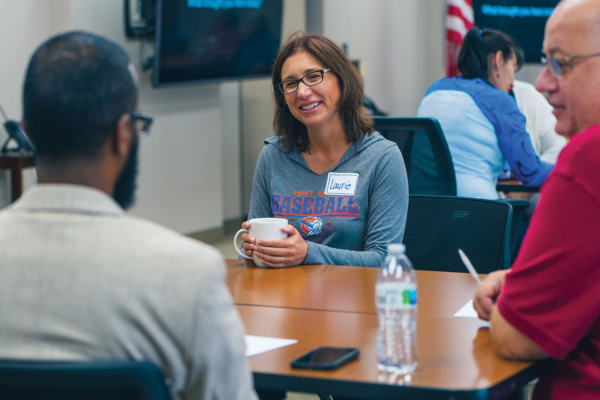Now, More Than Ever
Type:
Article
Topics:
School Administrator Magazine
June 01, 2017
President's Corner
What’s done in the dark will come to light.”The message of this adage for young people growing up in our community, including me, was that when you do something you shouldn’t be doing, it will one day be found out. What’s more, you could expect negative consequences — legal trouble, public condemnation, embarrassment and even shame.
This admonition and other maxims were intended to help us develop character, integrity and a conscience, universal values reinforced by the community’s elders, who developed, guided and nurtured us.
Family pride and honor also played significant roles in managing behavior and developing honesty and integrity in my community, where everyone knew everyone else. Of course, we had issues from time to time — tempers flared or someone tested boundaries — but for the most part, we all got along well and upheld our common values. Regardless of our varied interests or outlooks, we felt a connection, and when someone violated a community norm or got out of line, so to speak, the result was collective community pushback.
Jim Dillon, director of the Center for Leadership and Bullying Prevention, defines a school community as a place where people value each other and have a sense of responsibility for helping everyone feel safe and protected. This describes many small towns and rural school districts today. However, tremendous population growth and the proliferation of the internet, social media and entertainment options are challenging our ability to develop and maintain shared values.
Our sense of community is becoming more digital than geographic. We’re not experiencing the kinds of geographically influenced common experiences that allow us to explore and uphold our shared values.
Faced with these challenges, now more than ever, we need leadership for our communities. Who will lead? Who are the village elders today?
A few years ago, I attended a conference intended to develop a pipeline of future leaders for public school systems. I didn’t think about it being any different from past conferences in which I’d participated. I’ve given dozens of presentations and served on more discussion panels about leadership than I can remember.
One morning we were having roundtable reflections over breakfast. Participants shared comments about the conference, what they liked and what they wished for. There were no notable revelations until one of my table mates expressed his gratitude for being able to “learn from my elders.”
After a glance at those around the table I realized he was talking about me. I had never thought of myself as an elder. Elders are those older folks I had looked up to and learned from. Most were retired already. A few had even passed away.
Admittedly, the thought of being regarded as an elder unsettled me at the time. It still does. I was chronologically older than those gathered at the table, but I didn’t feel old enough or wise enough to be an elder.
I needed to acknowledge and accept the fact that being an elder is about more than age. It’s about experience and knowledge. It’s about fulfilling the responsibilities of an entrusted leadership position. It’s about being someone who can be counted on to personify and manifest the values of the community or organization.
The position of superintendent bears the cloak of an elder. By accepting the position, you must respect that reality. Now, more than ever, we need that traditional sense of community for our nation. Now, more than ever, we need elders whom we can look to for guidance.
It has been my honor to serve this association, this profession, the students, the staff and each respective community in which I’ve lived. I humbly accept my role as elder.
Author
Advertisement
Advertisement
Advertisement
Advertisement



